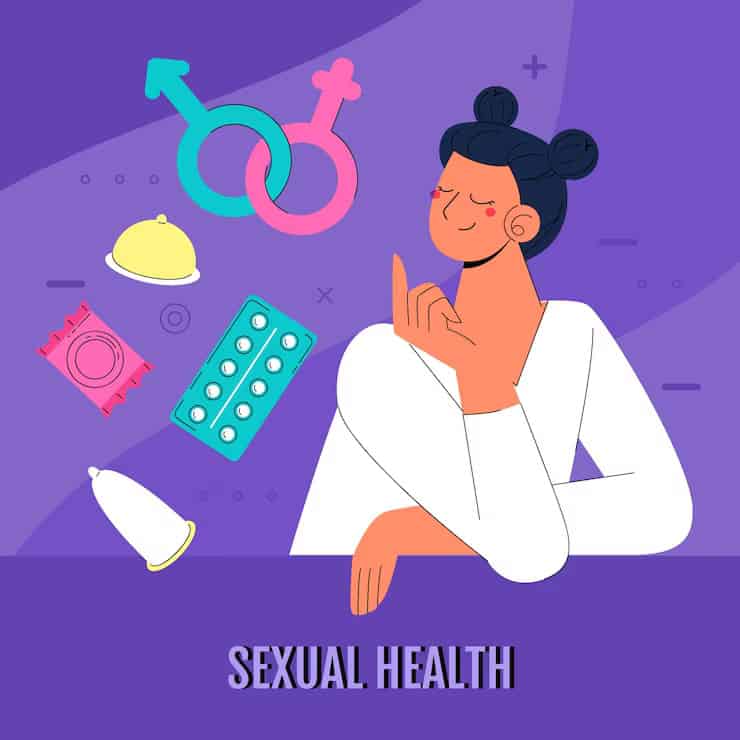Sex is not just a pleasurable activity; it also has a range of health benefits that contribute to both physical and emotional well-being. While the primary purpose of sex is reproduction and intimacy, numerous studies have shown that engaging in regular sexual activity can have positive effects on various aspects of health. From improving cardiovascular health to boosting mood and strengthening relationships, let’s explore the surprising health benefits of sex.
Cardiovascular Health
Engaging in regular sexual activity can have a positive impact on cardiovascular health. During sex, the heart rate increases, promoting better blood circulation. This increased blood flow helps to lower blood pressure and reduce the risk of heart disease. A study published in the American Journal of Cardiology found that men who had sex at least twice a week were less likely to develop heart-related problems.
Immune System Boost
Having sex can also give your immune system a boost. Sexual activity has been linked to an increase in the production of immunoglobulin A (IgA), an antibody that helps protect against infections. Regular sexual activity may help your body build a stronger defense against common illnesses.
Stress Relief
Engaging in sexual activity triggers the release of endorphins, commonly known as “feel-good” hormones. These hormones help to reduce stress, alleviate anxiety, and improve overall mood. Physical touch and intimacy play a crucial role in promoting emotional well-being and relaxation.
Pain Management
The release of endorphins during sex not only improves mood but also acts as a natural pain reliever. These hormones can help reduce pain associated with headaches, menstrual cramps, and other types of discomfort. Additionally, the muscle contractions that occur during orgasm can provide relief from muscle tension.
Better Sleep
After orgasm, the body releases another hormone called prolactin. Prolactin is associated with feelings of relaxation and contentment. This hormone can contribute to better sleep quality, helping individuals fall asleep more easily and enjoy a deeper sleep.
Hormonal Balance
Engaging in sexual activity can help regulate hormonal balance in both men and women. For instance, sexual activity has been linked to increased levels of testosterone in men. In women, regular sexual activity can help regulate the menstrual cycle and improve hormonal fluctuations.
Pelvic Floor Health
Sexual activity, particularly exercises involving the pelvic floor muscles, can contribute to improved pelvic floor health. Strong pelvic floor muscles are essential for bladder and bowel control, as well as sexual function. Kegel exercises, which involve contracting and relaxing the pelvic floor muscles, can be especially beneficial for women’s health.
Relationship Satisfaction
Healthy sexual activity is often associated with stronger emotional connections and relationship satisfaction. Open communication and intimacy between partners can lead to a deeper understanding of each other’s needs and desires. Sharing this intimate experience can foster trust and emotional bonding.
Conclusion
Sexual activity offers far more than just pleasure; it provides a range of health benefits that contribute to a healthier and happier life. From cardiovascular improvements to stress relief and relationship enhancement, the positive effects of regular sexual activity are backed by scientific research. It’s important to note that these benefits are most pronounced within the context of a consensual and respectful relationship. As with any activity, it’s essential to prioritize personal well-being and communicate openly with your partner about your needs and boundaries.
FAQ’s
Certainly, here are some health benefits associated with sexual activity:
1. Physical Exercise:
Engaging in sexual activity is a form of physical exercise. It can increase your heart rate, improve blood circulation, and contribute to better cardiovascular health.
2. Stress Reduction:
Sexual activity triggers the release of endorphins, which are natural “feel-good” chemicals in the brain. This can help reduce stress and improve your mood.
3. Immune System Boost:
Regular sexual activity has been linked to a stronger immune system. It can increase the production of antibodies and boost the body’s defense mechanisms.
4. Improved Sleep:
The release of oxytocin and endorphins during sexual activity can promote relaxation and better sleep quality.
5. Pain Relief:
Orgasms release endorphins, which can help alleviate pain, including headaches and menstrual cramps.
6. Hormonal Balance:
Sexual activity can help regulate hormone levels, contributing to better hormonal balance in the body.
7. Intimacy and Bonding:
Sexual intimacy can strengthen emotional connections and improve the quality of relationships.
8. Cardiovascular Health:
Regular sexual activity has been associated with lower blood pressure and a reduced risk of heart disease.
9. Pelvic Floor Health:
Certain sexual positions and activities can help exercise and strengthen pelvic floor muscles, which is important for bladder and bowel control.
10. Prostate Health:
For individuals with prostates, regular ejaculation has been linked to a lower risk of prostate cancer.
11. Improved Self-Esteem:
Positive sexual experiences can contribute to higher self-esteem and body image.
12. Hormone Regulation:
Sexual activity can help regulate hormones like estrogen and testosterone, which play crucial roles in various bodily functions.
13. Social Connection:
Engaging in sexual activity with a partner can foster a sense of intimacy and connection.
14. Pain Management:
Sexual activity and orgasms release natural pain-relieving chemicals that can help alleviate mild pain.
15. Positive Impact on Mental Health:
Healthy sexual activity can contribute to reduced anxiety and depression by promoting relaxation and positive emotions.
Remember that while there are potential health benefits to sexual activity, it’s important to prioritize consent, safe practices, and communication with your partner. If you have any underlying health conditions or concerns, it’s a good idea to consult with a healthcare professional.




